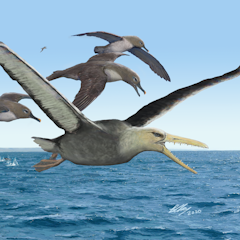
Articles on New Zealand
Displaying 61 - 80 of 279 articles

When scientists first thought to deceive predators with bird smells, the idea seemed crazy. But after seeing how fake news messes with the minds of both humans and animals, it now makes sense.

If a trans-Tasman travel bubble were to be established, passengers would likely need to use ‘vaccine passports’ to prove their vaccination status. But any tech-based system comes with security risks.

New research finds Australians and New Zealanders show high levels of trust in political leaders and in science. This in part explains the strong compliance with successful pandemic measures.

Commentators across the political spectrum spread anti-Islamic rhetoric, insisting that Islam is intrinsically violent and that Muslims are terrorists. But studies show these claims are unfounded.

The benefits of road-user charging are now well established. And including electric vehicles doesn’t have to be a deterrent to their uptake, as New Zealand and other nations have shown.

Watch two of Australia and New Zealand’s top vaccine and virus experts answering questions about COVID-19. This was filmed at a Conversation reader event with Avid Reader bookshop.

Paleontologists have discovered fossil remains belonging to an enormous ‘toothed’ bird that lived for a period of about 60 million years after dinosaurs.

There are two interesting points about Australia’s travel bubble with New Zealand. It only includes NSW and the NT. And for now, it’s only one way.

The tourist traps of Sydney, Melbourne and Queensland have the most to lose. Regional towns and coastal resorts have the most to gain.

I have criticised this government’s climate policy in the past for being big on promise but short on concrete policies. But this financial disclosure policy has some real teeth.

Stroke is New Zealand’s third highest cause of death, but few people recognise its symptoms and risk factors, particularly in Pasifika and Māori communities where stroke affects more people.

We have to balance the risk of transmission with the mental health challenges of lockdowns. A bubble system could alleviate loneliness while minimising infection risk.

Children need the opportunity to ask questions and have them answered by experts in ways they can understand. A briefing may reduce children’s anxiety and increase their understanding of the pandemic.

It’s hard to see how there will be any appeal for the Australian mass gunman who was jailed for life without parole since he was so accepting of his fate.

Genetic analysis of virus samples from New Zealand’s latest COVID-19 cases is now much swifter. It’s providing key information, but hasn’t yet answered the question of where this second wave started.

During uncertain times, feelings of anxiety and even anger are normal responses. If left unchecked, these emotions can affect how we behave, but acknowledging them can ease their intensity.

Worried about being accused of virtue signalling or getting funny looks for wearing a mask? Here’s how to test your ethics and come to the right decision.

Genomic sequencing of positive COVID-19 samples could help New Zealand pinpoint the source of its new community outbreak. But it only works if all samples are sequenced – and right now, they’re not.

We believe New Zealand can eliminate COVID-19 again. But it could do more to speed up that process with mandatory masks and tighter controls on high-risk venues, including bars, gyms and churches.

Our new modelling shows the risk of an infectious person slipping through New Zealand’s border undetected is very low — likely to happen only once over the next 18 months.
